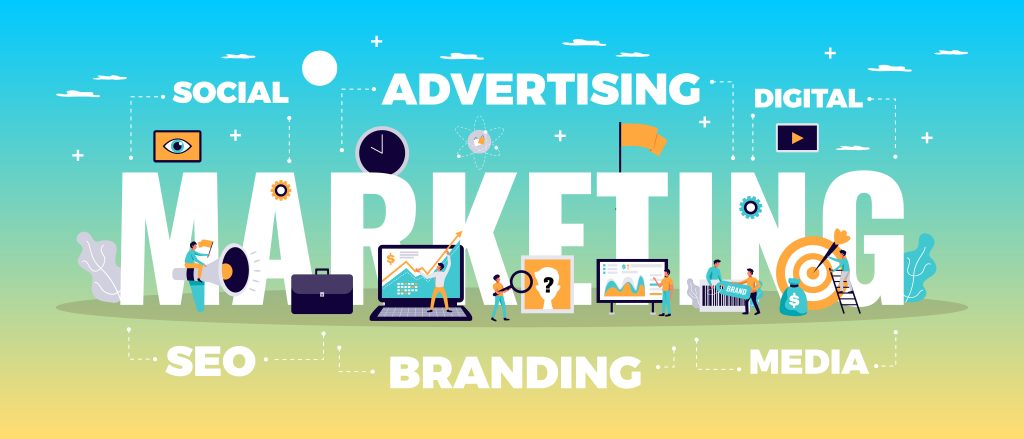Many businesses struggle to keep up in the digital world. The future of business is digital. This post shows how TMS Digital Marketing Agency can prepare your company for this change.
Read on to find out more.
Assessing Your Business’s Digital Readiness:
Is your business equipped with the right digital tools and strategies for the future? Identify potential gaps in your digital transformation to ensure readiness for what lies ahead.
Evaluating current digital tools and strategies
Businesses must check their digital tools to see if they’re ready for the future. This means looking at what they use online and how they market themselves. It’s key to make sure these fit well with new technology trends.
For a business to grow, using advanced digital marketing is vital. A company like TMS Digital Marketing can help improve these plans. Continuous evaluation of digital tools and strategies is critical for relevance in a fast-changing market.
It’s also important to always look for ways to get better. Strategies that worked before might need changes to stay competitive. Keeping up with SEO optimisation, social media marketing, and e-commerce solutions helps businesses not fall behind.
Plus, trying new things like automation can open doors to even more customers online.
Identifying gaps in digital transformation
Digital readiness is essential for a company’s prosperity in the current online environment. Discrepancies in digital adaptation highlight areas for enhancement.
- There is a shortage of strong online visibility among many companies, restricting their exposure and interaction with prospective clients.
- Certain businesses have yet to adopt digital resources for commerce, resulting in a lag in productivity and customer support.
- A frequent inconsistency is the lack of an explicit digital tactic, complicating competition and growth in the virtual marketplace.
- Internet-based branding initiatives often display irregularities or weaknesses, affecting brand identification and allegiance.
- Companies occasionally omit paid promotion, forgoing targeted gestures to reach their demographic.
- There is often a reluctance to adopt digital innovation, decelerating the adjustment to new tech that could be beneficial for operations and sales.
- The modernisation of a business through tech isn’t fully utilised, leading to antiquated processes that obstruct development.
- The deficiency in tech investments for businesses leads to bypassed automation prospects and boosted output.
- Not developing an all-encompassing online business strategy might lead to revenue loss and a decreased market share.
- Digital client engagement techniques are often underdeveloped, impacting client contentment and retention.
- Not all companies give priority to mobile marketing, disregarding the surging number of internet users who exclusively use mobile devices.
- Business cloud solutions might be neglected, influencing collaboration, data storage, and ease of access.
- Some firms have not yet integrated marketing automation into their workflow, potentially optimising tasks and efficiently personalising customer engagement.
Recognising these discrepancies enables businesses to construct a plan for incorporating necessary digital tools and strategies. This progression to greater digitalisation aligns with market demands and heightens overall effectiveness.
Key Digital Strategies for Future Success:
Leverage data-driven insights to inform business decisions and drive growth. Embrace automation and AI technologies to streamline processes and enhance operational efficiency.
Leveraging data-driven insights
Having access to data-driven insights plays an essential role for businesses hoping to flourish in the online space. Through the examination of user interaction with their websites, companies can more effectively modify their digital marketing strategies.
This incorporates the refinement of SEO tactics and the optimisation of social media campaigns to connect with the correct audience. With the use of tools that observe consumer behaviour, businesses attain crucial hints on ways to improve user experience and augment engagement.
The use of analytics shifts speculation into strategy. It makes possible the creation of targeted advertising and content marketing that engages with potential customers. For instance, if the information indicates that certain blog posts garner more interest, a company can generate content of a similar nature to promote further reader interaction.
This strategy enhances online visibility but also assists in achieving improved conversion rates, leading to a greater ROI from digital marketing efforts.
Embracing automation and AI technologies
Transitioning from utilising data-oriented insights, organisations must now concentrate on integrating automation and AI technologies. These instruments are vital for refining digital marketing approaches and enhancing operational efficacy.
Through task automation, firms can reduce expenditures and allocate more time to strategic duties. AI technologies carry the tasks further by delivering personalised user experiences.
Automation and AI are fundamental in updating internet business strategies. They facilitate precise data scrutiny, assisting companies in effectively segmenting their clientele and employing predictive analysis for intelligent choices.
This transformation results in enhanced customer service and fuels expansion by customising digital advertising initiatives based on individual requirements.Integrating automation results in financial efficiency by simplifying procedures.
For triumphant application, possessing suitable technology and proficiency is key. Companies must arm themselves with sophisticated digital aids that back these AI-oriented solutions to remain competitive in the future trading environment.
Adapting to Emerging Digital Trends:
Stay ahead with mobile-first approaches and enhance customer engagement through digital channels.
Mobile-first approaches
Businesses are now focusing on mobile-first strategies. This means they design websites for phones before making them work on computers. Google likes these mobile-ready sites more, so they show up higher in searches.
More people like to shop and browse on their phones too. By using a mobile-first strategy, businesses make sure customers enjoy visiting their sites, which keeps them coming back.
Having a strong online presence starts with being good on mobile devices. This approach leads to more people engaging with the business and even buying things through their phones or tablets.
Firms that get this right see better sales numbers and stronger loyalty from customers who appreciate easy access and use on their handheld devices.
Enhancing customer engagement through digital channels
Digital channels are key to building strong relationships with customers. By using social media platforms, businesses can talk directly to their customers. This helps in understanding what the customer likes and needs.
With tools like email marketing and online advertising solutions, companies send messages and offers that fit each customer.
Using data analytics gives insights into how customers behave. This information guides companies in making smart marketing choices. It also helps in creating content that catches the eye of more people on the internet, growing brand awareness and loyalty.
Digital strategies help keep customers coming back by giving them a good online experience.
Conclusion
The future is digital. Your business needs to get ready for it now. Check if your company uses the latest digital tools and strategies. It’s time to embrace things like AI, data insights, and mobile-first approaches.
Doing this can help you meet customer needs better and stay ahead in the market. Make sure your business grows by using digital ways to connect with customers and sell more products or services online.





